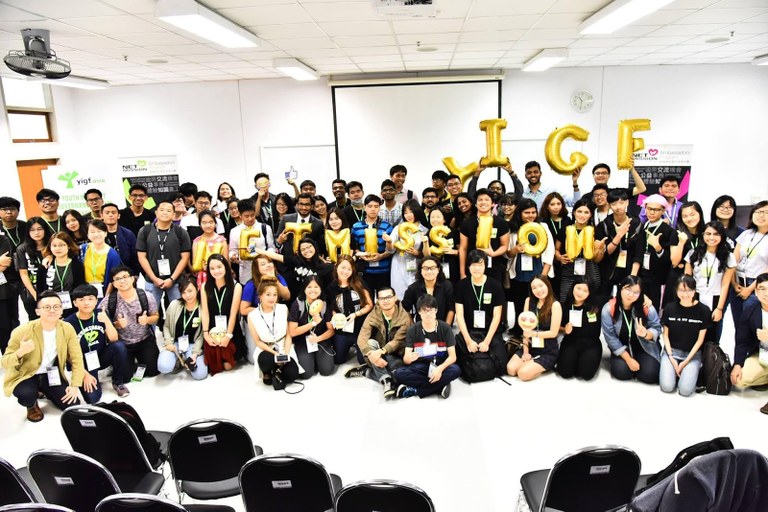
2017 Youth Internet Governance Forum (YIGF)
Kay Yen Wong, shares her experiences as a youth participant at 2017 Youth Internet Governance Forum (YIGF), at Asian Pacific Regional Internet Governance Forum (APRIGF), Chulalongkorn University, Thailand
The 2017 Youth Internet Governance Forum (YIGF) was run parallel with the Asian Pacific Regional Internet Governance Forum (APRIGF) in Chulalongkorn University from the 26th to the 29th of July. Open to undergraduate or graduate students from the Asia Pacific region, it provided youths with an open platform for the discussion and interchange of ideas on local and global internet governance and policies.
Multi-stakeholder Roleplay Discussion
Youths from within the Asia Pacific Region were provided with the opportunity to exchange knowledge on the issues that impact them, sharing diverse perspectives and approaches specific to their country and background.
A key feature of the forum was an ongoing role-play discussion where all participants were assigned to different stakeholder groups on various internet governance issues, encouraging them to think from new standpoints and perspectives.
YIGF provided me with insights such as the importance of explaining implications or limitations of technology to different groups as a necessary skill for furthering discussion on the more technical aspects of internet governance
The experience of engaging in multi-stakeholder discussions provided me with invaluable insights into communication amongst different stakeholders with differing goals and approaches which I was unused to — notably, the importance of explaining implications or limitations of technology to different groups as a necessary skill for furthering discussion on the more technical aspects of internet governance. I gained an intuitive understanding of the divide in communication in the ways different initiatives from varying backgrounds (eg. legal, policy, or tech), and a newfound appreciation for efforts such as YIGF and APRIGF to bridge that gap.
These discussions were both fun and insightful, encouraging the cooperation and exchange of ideas between sides with novel perspectives to be able to better understand the different problems each initiative face, leading to the facilitation of improved collaboration efforts in keeping the internet free.
Algorithmic transparency
With the internet being an ever expanding medium for communication and expression in marginalised countries, algorithmic transparency was a common topic throughout the forum. Censorship on social media has become an increasingly prominent issue taking many forms,from the outright filtering of LGBT content by Youtube,to the more subtle algorithmic manipulation of Facebook news feeds in suppressing conservative viewpoints during the 2016 presidential elections. With the influence social media platforms hold in shaping opinions and perspectives with just nuanced manipulations to the flow of content,it is concerning that there is a lack of transparency in the decisions social media companies take in content moderation, be they governed by government requests, or towards the appeasement of shareholders and ad sponsors.
Rich discussions were held on the regulation of algorithmic decision making, with Malavika Jayaram from Digital Asia Hub making note of the necessity to find the right balance between holding back innovation and regulating the boundaries of tech in digital rights. Resources on more systematic approaches for reasoning about bias and accountability in Machine Learning were also shared, towards understanding machine recommendations or generated content which have non-negligible influences on human decisions on a wider scale.
Capacity Building
Despite being a generation of digital natives whom are highly active users of the internet, youths lack opportunity or impact in discussing or shaping policies in a medium that heavily impacts most of their lives. There was a greater inclusion of youths in the this year's APRIGF parent event, where youths were free to participate in various APRIGF workshops and even provide vital youth oriented perspectives through engagement in discussions. The opportunity to play a role in changing the landscape of digital and internet technologies was highly invaluable, and I look forward to having more opportunities to engage in capacity building platforms that encourage youth contribution in the discussion of internet governance issues.
About the Author

Contributing Researcher
[email protected]
Twitter: @wkayn
Kay is a contributing researcher at Sinar. She is currently pursuing her Bachelors in Computer Science with a specialisation in Data Science. She is passionate about Machine Learning and data analysis, and is currently learning more about digital rights and open source development working at Sinar. In her free time, she’s usually working on her NLP project, learning new technologies, reading, and thinking about metaresearch.
